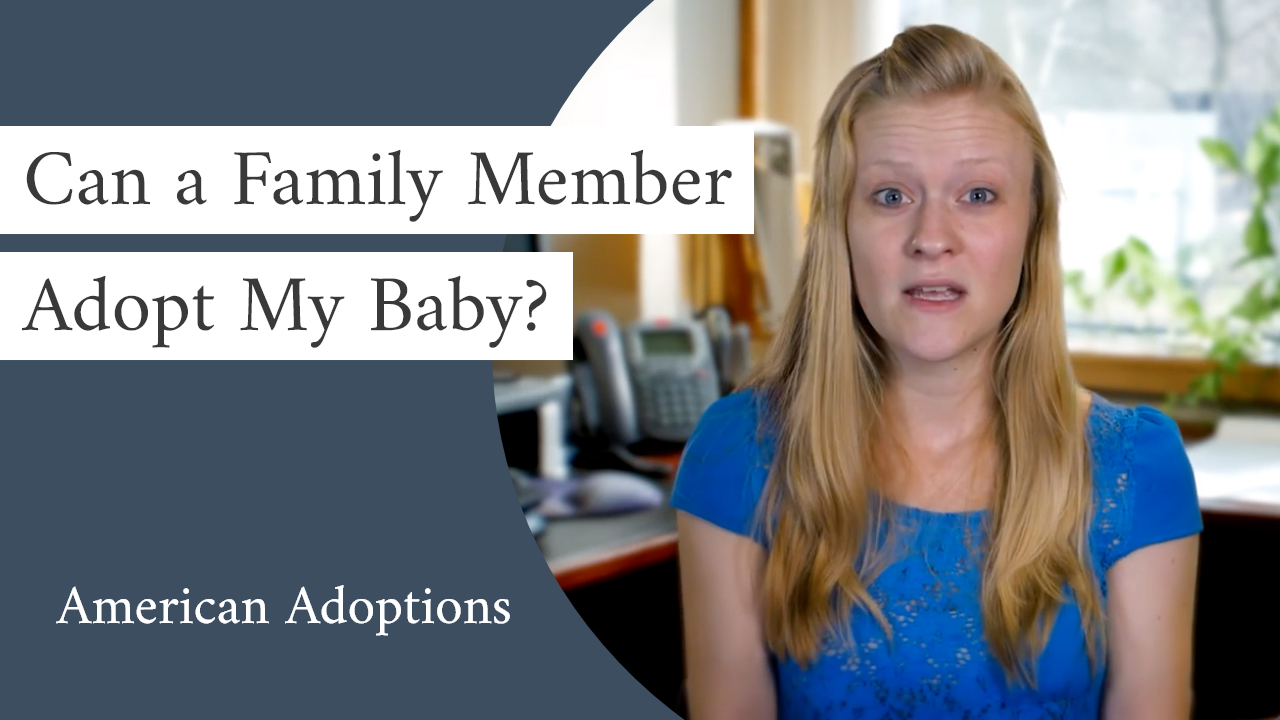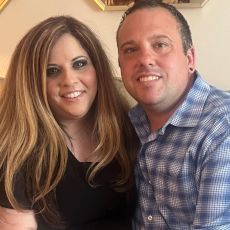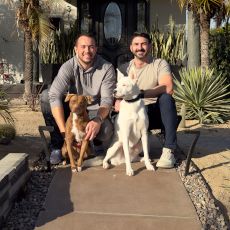Can a Family Member Adopt My Baby? [And Should They?]

On the surface, It might seem like the perfect solution: A friend or family member offers to adopt your baby because you are facing an unplanned pregnancy. So you may be wondering, "Can a family member adopt my baby?" The answer is: Yes, they can. But, should they? Contact us at 1-800-ADOPTION to learn more about a family member adopting your baby.
You can contact a lawyer or adoption professional and complete what’s called a “kinship adoption” or “family adoption.” It seems to be a win-win situation — your relative is prepared to raise a child, you can continue pursuing your goals, and you will still see your child on a regular basis.
But, while kinship adoption may seem ideal on the surface, “giving a baby up” for adoption to a relative can actually have some serious complications. You may want to consider the following factors before “giving your child up” for adoption to a family member.
What “Giving a Baby Up” for Adoption to a Family Member Really Means

Before we get into the pros and cons of placing your child for adoption with a family member, it’s important to first address the language we use when talking about adoption. Whether you are placing your child for adoption with a family member or choosing an adoptive family through an agency, adoption is never “giving up.”
As you consider your options, you might find yourself using language like “giving my baby up for adoption to a relative.” But, while this type of language is common, know that it isn’t accurate.
“Giving up” implies failure or carelessness. But the truth is that adoption — no matter who you place your baby with — is a brave, selfless, loving, proactive choice. It’s so much more than merely “giving up” or “giving away” your child. You can read more about why you’ll come across this type of negative adoption language, as well as what you should say instead, here.
Can a Family Member Adopt My Baby? [Advantages of Relative Adoption]
Yes — and there are a few reasons why family adoption may be appealing to you. Under the right circumstances, these arrangements can have certain benefits. Some potential advantages of relative adoption include:
-
An established sense of trust: Because you already have a personal relationship with the relative who is adopting your baby, you may have fewer concerns about the life and love they will provide for your child. You may have had opportunities to observe them in a parenting role and agree with their parenting style. And if you have a positive relationship with them now, you may feel confident that you will be able to maintain a post-adoption relationship with them and your child.
-
More post-adoption contact: Depending on your circumstances and your relationship with the adopting family members, relative adoption may give you more opportunities to interact with your child. While you can choose to have an open or semi-open adoption with non-relatives, placing your child with a family member may give you opportunities for more frequent visits, phone calls, and more.
-
Potential to parent later: It is a common question for expectant mothers — if a family member adopts your baby, is there a chance to get your child back? Whether or not you place your child with a relative, adoption is a permanent decision — “giving a baby up” for adoption to a family member short-term is not an option, because placing a child for adoption permanently terminates your parental rights to that child. However, if you feel certain that your situation will improve and you will be ready to parent in the near future, you may be able to arrange a temporary guardianship with a family member. This legal guardianship would give your family member temporary custody of your child while you finish your degree, find a more stable living situation, or otherwise prepare to take over the parenting role.
-
Less conflict with family: If your family does not support your decision to place your baby with unrelated adoptive parents, you may be able to avoid current conflict by placing within your family. However, you should never make your adoption decisions based on what someone else thinks is best; you are the only person who can decide what is best for yourself and your baby. There’s a big difference between thinking, “My family wants to adopt my baby” and “I want my family to adopt my baby.” Choosing kinship adoption because you feel pressured to do so can lead to greater conflict and resentment later on.
While there can clearly be many positive aspects of relative adoption, it is important to remember that every expectant parent’s situation is different, and every family’s dynamics are different as well. Not every family adoption will involve more post-placement openness, and while it may allow you to avoid family conflicts now, it’s recommended to consider the potential for conflict later on.
Helpful Information
Disadvantages of Kinship Adoption
“Will a relative adopting my baby cause problems?” Sometimes.
There are several unique challenges that expectant mothers should consider before “giving a baby up” for adoption to a family member. You should carefully consider the following disadvantages before learning how to give your child up for adoption to a family member:
-
Parenting disagreements: Family adoption is not co-parenting. When your baby is legally adopted by new parents, you no longer have parental rights for your child. This means that you will have to respect your relative’s parenting style and decisions, even when you disagree. This can be difficult for any birth mother, but it may be especially challenging when you are in frequent contact with the adoptive parents. These conflicts can damage your relationship with family members, and can also be a painful reminder that you do not have the same parent-child relationship with your child that they do.
-
Potential shifts in post-adoption contact: Adoption relationships often change and evolve over time. While these changes are natural, they can be difficult in kinship adoptions, especially when both parties cannot agree on the type and amount of post-adoption contact. Shifts in post-placement contact not only affect the adopting relatives (birth mother and child) but also other family members, who may be caught in the middle. While adoption agencies may provide post-placement support and correspondence services to help manage these issues, families who complete independent kinship adoptions are often left to navigate these challenges on their own.
-
Role confusion: If you place your baby for adoption with your parents, he or she is biologically your child, but legally your brother or sister. Biologically, your siblings will be the child’s aunts and uncles, but legally, they will be his or her siblings as well. And your other children will be the child’s biological siblings, but his or her legal nieces and nephews. If each family member’s roles, responsibilities and expectations are not clearly defined from the beginning, all of these different connections will be confusing for everyone involved. The result may be that your child doesn’t truly know where he or she fits into your family.
-
Constant reminder of loss: For some birth parents, it is difficult to be reminded of their adoption decision on a regular basis. If you plan to complete the kinship adoption process, consider how you will feel at every holiday and family gathering, and whether you will struggle to feel a sense of closure when you are constantly reminded of your grief and loss.
-
Feelings of judgment: Some birth parents who choose relative adoption feel that family members judge them for not being able to parent their child. They may feel guilty for not being able to help share the responsibilities for their child, or they may feel that other family members scrutinize their post-placement relationship with their child.
-
Missed opportunities: It’s entirely possible that your relative is truly the perfect fit to raise your child — but it’s also possible that there is a waiting adoptive family out there who is even better equipped to provide the type of life and opportunities you want for your baby. There are hundreds of waiting adoptive families who have been hoping, preparing and longing for a child, often for years. These families come from all different backgrounds and can offer all sorts of opportunities to a child. If you choose to place your child with a family member simply to avoid conflict with them or because it seems convenient, you could be missing out on meeting adoptive parents who could be an even better fit for you and your child.
-
Future family relationships: If you currently have other children or believe you may have other children in the future, you need to consider the effect your adoption decision will have on those children and their relationships with one another. For example, if your child is adopted by your parents, consider how you will explain his or her relationship to your future children. Will they consider him or her a sibling, aunt or uncle? Also consider how it will affect the adopted child to see your parent-child relationship with your future children. Just as it may be difficult for you to process your feelings of grief and loss when you see your child interacting with his or her adoptive parents, it may be difficult for your child to find closure when he or she sees you interacting with your other children.
Knowing all this, it’s important to honestly ask yourself, “Can I let a family member adopt baby after delivery? Am I ready for the way this arrangement will forever change our family dynamic?” Every woman’s situation is different, and you are the only person who can determine whether family adoption is right for you and your baby. However, it is important to consider all of your options, and the pros and cons of each, when learning how to place a baby for adoption to a blood relative versus choosing an adoptive family.
How Can a Family Member Adopt My Child?
Maybe, after weighing all the pros and cons, you decide that kinship adoption is the right path for you. At this point, you’re probably thinking, “If I want to give my baby up for adoption to family members, what do I do?”
Every adoption is unique, and your process will vary depending on your individual situation. In general, though, here’s how to place a baby for adoption to a blood relative:
Step 1: Contact a professional
First, you’ll need to contact an adoption professional to learn how a child can be “given up” for adoption to another relative. They’ll walk you through the legal processes, make sure you understand the finality of your decision and the new social roles you’ll be taking on and more. If you are certain you want to move forward with a relative adoption, this process can be arranged independently with an adoption attorney. However, if you’d like to explore all of your options before making a decision, an adoption agency like American Adoptions will be the best professional to help you.
Step 2: Create an adoption plan
Your adoption professional will work with you and the family member who is adopting your baby to create an adoption plan that you’re both comfortable with. They’ll help you to establish boundaries so that your relationships as a family can be preserved while putting your child’s best interests first.
No matter what stage you’re at in your pregnancy, or even if you’ve already taken your child home, you can still choose adoption for your baby. You can also choose adoptive parents that aren’t your family members at this stage, if you prefer.
Step 3: Prepare for the hospital stay and placement
As part of your adoption plan, you can also create a hospital plan that outlines how you’d like your hospital stay to go. After giving birth, you may have to wait a certain amount of time before signing the legal consent paperwork to officially place your child for adoption. It’s important to know that you can change your mind about the adoption or your baby’s adoptive parents at any point prior to signing this consent.
It’s a common question for women considering kinship adoption: “If you are giving your baby up for adoption to a relative, who takes home baby at discharge time?” Your relative would take the baby home.
From the moment you sign your adoption consent forms, your relative is your baby’s parent. Issuing your consent to a relative adoption means that you’re terminating your legal parental rights to your child. Even if your baby is adopted by a family member, you are no longer your baby’s parent.
Step 4: “What happens after a relative adopts my baby?”
Your relative is your baby’s parent, so you’ll need to learn to respect those new boundaries and the new roles within your family. This will change your relationship with your relative as well as your relationship with the baby, so this may take some getting used to. You all can work together to establish an open adoption plan that everyone is comfortable with moving forward.
What if I Don’t Want a Relative to Adopt My Child?
With all of the advantages and disadvantages in mind, ask yourself: “Can I let a family member adopt my baby after delivery? Is this really the best choice for me and my child?”
If you decide that the answer is no, that’s completely okay. If you think you may be more comfortable making an adoption plan with a non-relative, there are hundreds of waiting adoptive families who have been pre-screened and are excited and ready to adopt. If you are hesitant about placing your child for adoption with a family you do not know, consider the following:
-
With American Adoptions, every waiting family has undergone an extensive home study and background checks to ensure they are safe and ready to adopt.
-
If you would like to get to know the adoptive family before placement, your adoption specialist will help you set up phone calls, emails, and even in-person visits.
-
Each of our families creates an adoptive family video profile, which gives you a glimpse into their lives and their genuine excitement to become parents.
-
You are in control of your adoption plan, including the type of post-adoption relationship you want to have with your child and the adoptive family. This means that even if you choose unrelated adoptive parents, you can remain an important part of your child’s life.
Most importantly, remember that when you make an adoption plan for your baby, you will be forever connected to him or her and the adoptive family. If you choose to have a relationship with them, they will become your family, too.
If you are considering family adoption for your baby, you may speak with an adoption specialist by calling 1-800-ADOPTION to discuss your situation and ensure it is truly the right choice for you and your baby.
If you’re sure that placing your baby for adoption with a family member is the right decision for you, and you’re ready to move forward with the process, you can contact a local adoption attorney in your state to get started. If you’re unsure about placing your baby with a family member, an American Adoptions specialist can connect you with plenty of other adoptive families that might be a better right fit. No matter how long it takes, we can promise that you will find the perfect family for your baby.
Disclaimer
Information available through these links is the sole property of the companies and organizations listed therein. American Adoptions provides this information as a courtesy and is in no way responsible for its content or accuracy.





































